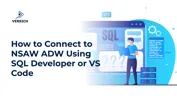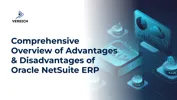Who is a NetSuite developer, and why does the role matter so much in the revolving NetSuite Ecosystem? In simple terms, a NetSuite developer translates business requirements into working configurations, scripts, integrations, and UI extensions within the NetSuite platform. These developers work closely with consultants, administrators, and project managers from initial design through post-go-live optimization. They are the builders who ensure that NetSuite isn’t just deployed but tailored to fit each organization’s unique workflows, data model, and compliance posture.
Role Overview
The core mission of a NetSuite developer is to build automation, customizations, and integrations that align NetSuite with business processes while maintaining data integrity and system performance. Unlike administrators who manage roles, permissions, and standard features, developers extend the system through code called SuiteScripts (we’d talk further about SuiteScripts in this blog post) and advanced configurations.
Collaboration is central. Developers work with consultants to ensure solutions fit business processes, with PMs to deliver milestones, and with administrators to enforce governance. Post-go-live, developers continue to deliver enhancements, performance improvements, and scaling work, making them long-term contributors to business value.
Responsibilities by Lifecycle Phase
Discovery and Design
During early phases, developers translate business requirements documents (BRDs) and use cases into technical specifications. They decide when configuration or SuiteFlow is enough versus when custom NetSuite development via SuiteScript is required. They identify records, fields, and integration surfaces, and establish testing criteria.
Build
In the build stage, developers:
Create custom records, fields, and forms.
Write SuiteScript 2.x scripts (user event, client, scheduled, map/reduce, Suitelets).
Build RESTlets for HTTP endpoints.
Utilize formulas to develop advanced saved searches and workflows.
Apply coding standards and naming conventions.
This is where NetSuite expert developers deliver the most visible value, turning paper requirements into functioning ERP logic.
Data and Integrations
Developers design mappings and define External IDs for reliable synchronization. They use SuiteTalk SOAP or REST web services for standardized data exchange, or RESTlets for custom logic. They plan retries, idempotency, and error handling to ensure integration reliability. This is a core function of NetSuite development services offered by implementation partners
Testing and Release
In sandbox environments, developers conduct unit testing, systems and integration testing (SIT), and user acceptance testing (UAT). They package features via SuiteBundler when needed, monitor governance limits, and document features for administrators. Thorough documentation, including NetSuite developer documentation, ensures maintainability and operational safety.
Post-Go-Live
After deployment, developers support hypercare (post go-live) with bug fixes and performance tuning. They implement incremental features and monitor integrations, applying error-handling playbooks. This ongoing role ensures long-term ROI and resilience of the NetSuite ERP
Tech Stack and Tools
SuiteScript
At the heart of the NetSuite development platform, SuiteScript provides JavaScript-based scripting for user events, scheduled scripts, map/reduce scripts (for large-scale data processing). Suitelets allow developers to create custom UI pages inside NetSuite. This flexibility enables bespoke automation and user experiences. Over time, SuiteScript has evolved into several versions:
SuiteScript 1.0 – The original API, offering server-side scripting with a procedural style. Still supported but considered legacy.
SuiteScript 2.0 – A major update introducing modular programming (AMD style), better governance handling, and a more consistent API structure.
SuiteScript 2.1 – Builds on 2.0, aligning with modern JavaScript standards (ECMAScript 2019+), supporting features like let/const, arrow functions, and async/await
RESTlets
RESTlets expose custom logic via HTTP endpoints, typically secured with token-based authentication. They are ideal when standard APIs don’t fully meet business requirements. RESTlets are a favorite tool for the NetSuite web developer role.
SuiteTalk APIs
SuiteTalk offers both SOAP and REST web services for standardized CRUD operations across NetSuite records. These APIs are essential for long-term, stable integrations with external systems like CRMs, ecommerce platforms, and 3PL providers.
NetSuite Administrator vs NetSuite Developer: Clear Boundaries
It’s common to confuse NetSuite administrators and developers but here’s a distinct difference.
Administrator: Manages users, roles, permissions, saved searches, reports, and standard workflows. Governs environment settings and ensures compliance.
Developer: Builds beyond native capabilities using the SuiteCloud Software Development Kit (SuiteCloud SDK), SuiteScript, RESTlets, and APIs. Partners with admins to enforce least-privilege roles and ensure production safety.
The distinction is critical to maintain governance and prevent misuse of admin privileges.
Environments and Safe Delivery
Developer Accounts
Accessible to partners, developer accounts mirror NetSuite features without containing sensitive customer data. They are used for isolated builds and early testing.
Sandbox Accounts
Sandboxes are exact copies of production, including data. They enable realistic testing, UAT, and performance validation before deployment. Developers rely heavily on sandbox governance for safe delivery. You could have 1 or more sandboxes, depending on the number of projects and integrations you’re running simultaneously, their scope, and complexities
Certifications and Proof of Skill
NetSuite certifications validate a developer’s expertise across modules and technical domains. Teams with certified resources demonstrate credibility and ensure consistent quality.
Certification paths include:
Here’s the official Oracle NetSuite link to get NetSuite developer certifications: click here.
Portfolio signals also matter. Prior work on Suitelets, Map/Reduce scripts, or complex integrations shows depth beyond basic automation.
Hiring and Evaluation Guide
When hiring or evaluating a NetSuite developer, organizations should look for:
Ability to choose between configuration, SuiteFlow, and SuiteScript judiciously.
Proficiency with SuiteScript 2.x design patterns.
Experience designing integrations with SuiteTalk or RESTlets.
Familiarity with safe deployment through sandbox accounts.
Strong documentation and collaboration habits. (very important!)
Questions to ask in interviews:
Describe a scenario where you replaced a brittle client script with a user event + Map/Reduce solution.
How do you manage External IDs and idempotency for integrations?
What’s your strategy to avoid over-permissioning integration users?
These questions distinguish true NetSuite expert developers from junior resources.
Common Deliverables
Custom Objects: Records, fields, forms, and Suitelets for specialized workflows.
Governed Scripts: Efficient, modular, and well-documented code that is scalable, flexible (not hard-coded) and respects governance limits.
Integrations: CRM, E-commerce, 3PL, and analytics platforms linked via SuiteTalk or RESTlets, with retry logic and reconciliation searches.
These deliverables represent the day-to-day output of custom NetSuite development engagements.
Best Practices and Guardrails
Prefer configuration and SuiteFlow first; use SuiteScript for gaps.
Keep code modular, versioned, and well-documented.
Apply naming conventions and consistent standards.
Use saved searches for observability.
Enforce least-privilege roles and separate integration users.
Audit role coverage end-to-end before production.
These practices make the difference between a fragile ERP program and a sustainable one.
Career Path and Team Composition
Many developers play hybrid roles that include consulting or admin responsibilities. Successful ERP teams usually consist of a project manager, consultant, administrator, and developer, ensuring end-to-end project delivery quality.
For career growth, exposure to SuiteCommerce Advanced, performance tuning, and complex integrations broadens impact and creates senior opportunities. This is why many firms invest heavily in NetSuite development services as part of their digital transformation.
Conclusion
Answering who a NetSuite developer is reveals a role far beyond coding. Developers are the architects of automation and integration within NetSuite, ensuring the system fits business processes, scales securely, and remains maintainable. They wield the full NetSuite development platform from SuiteScript to SuiteTalk to deliver value that administrators and consultants alone cannot achieve.
For organizations, hiring the right NetSuite developer or partnering with a team offering comprehensive NetSuite development services means ERP becomes a growth enabler rather than a constraint. By following best practices, enforcing governance, and choosing certified talent, businesses can ensure their NetSuite investment delivers sustainable, long-term impact.





